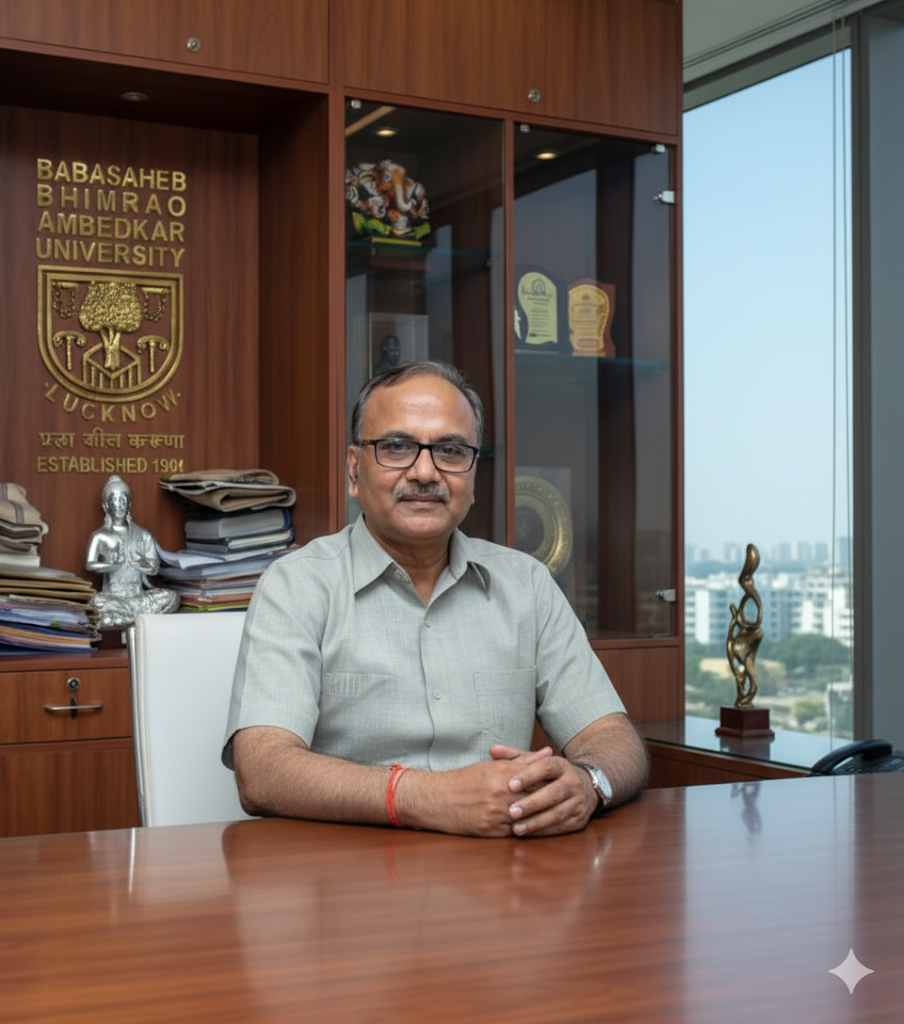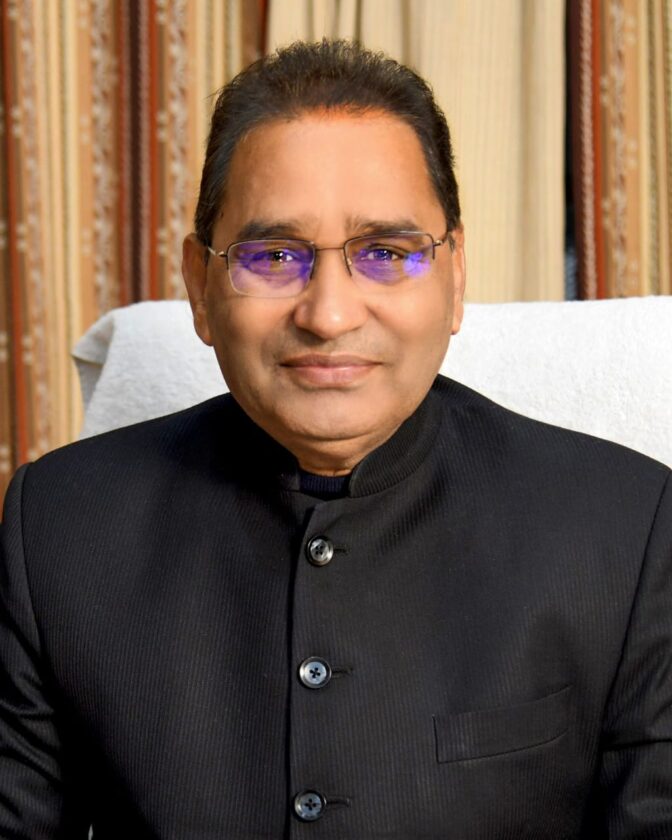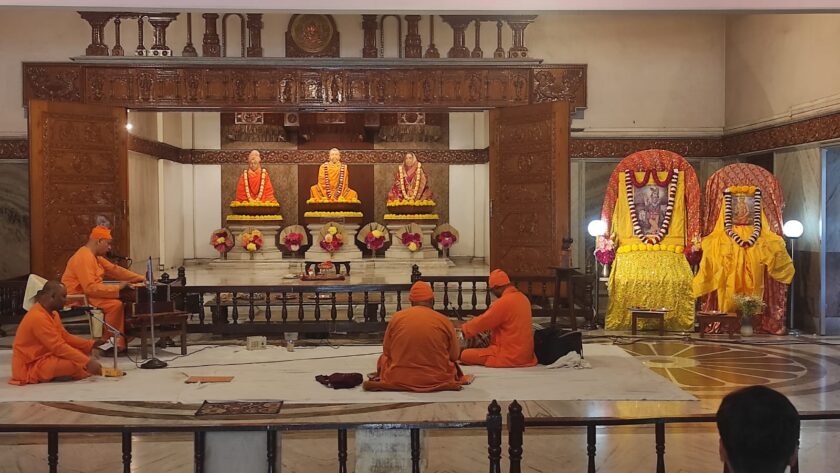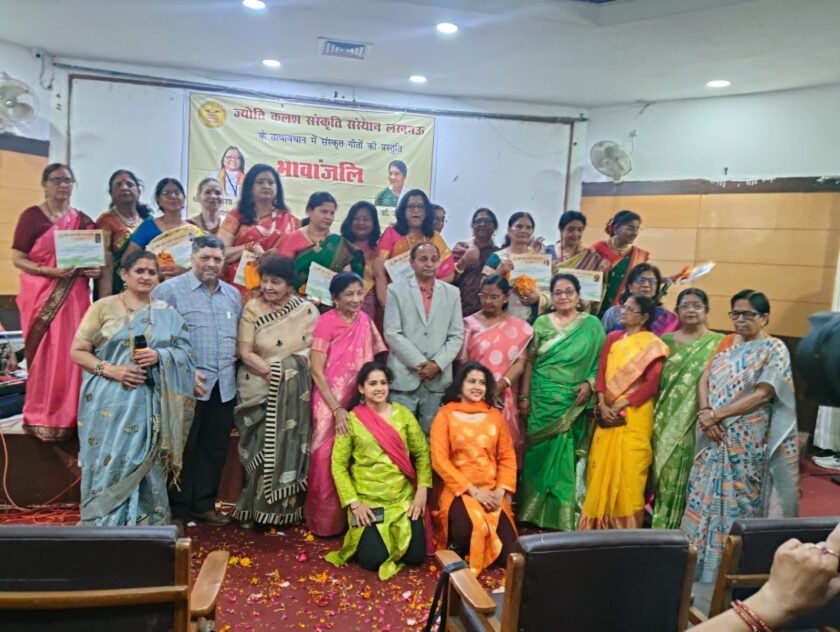By Arijit Bose
Lucknow: When Professor Raj Kumar Mittal took charge as Vice Chancellor of Babasaheb Bhimrao Ambedkar University (BBAU), he carried with him a firm belief: higher education must reflect Babasaheb Ambedkar’s ideals of harmony, equality, and quality learning. Today, BBAU is witnessing a transformation under his stewardship, balancing modern innovation with ancient Indian wisdom, while keeping social inclusivity at its heart.
In a wide-ranging interview with The Lucknow Tribune, Prof. Mittal shared his vision for the university, the initiatives being rolled out, and the role Indian Knowledge Systems (IKS) can play in shaping future generations.
On Socially Inclusive Education
Q: Professor Mittal, BBAU has been talking a lot about inclusivity. What does this mean in practical terms?
Prof. Mittal: “Inclusivity is not just a word, it’s a responsibility. At BBAU, we are aligning with UGC guidelines to ensure that education reaches the most marginalized. We are working with communities such as snake charmers, weaker sections, and other underprivileged groups to streamline their lives through counseling, teaching, and motivation.”
The university’s Lucknow Centre has been tasked with community outreach, while extension services focus on counseling and skill development. Five villages have already been adopted under the university’s wing. The aim, Prof. Mittal explains, is to raise living standards, skill levels, awareness, and social indicators.
“Our National Service Scheme (NSS) and National Cadet Corps (NCC) volunteers are playing a crucial role,” he adds. “Certificate courses and training programs have been launched so that youth from these communities don’t just survive—they thrive.”
On Academic Direction and Skill Building
Q: How is BBAU aligning its academic offerings with the changing needs of students and the industry?
Prof. Mittal: “The UGC framework emphasizes multidisciplinary growth, holistic development, and skill building. These are the cornerstones we’re working with. At BBAU, we’re strengthening political science, management, finance, and media programs, while also focusing on practical skills such as SPSS, Tally, and engineering software. Innovation remains a constant priority.”
Prof. Mittal also outlines ambitious plans: a dedicated entrepreneurship cell and a skill centre, designed to encourage students to become job creators rather than job seekers. “The future is about self-employment and innovation. We want our students to be at the forefront,” he asserts.
Already, the Central Training and Placement Cell has seen success, with 290 students placed in top companies this year alone. Departmental placement cells are also being strengthened.
On Industry-Academia Linkages
Q: The gap between industry and academia is often debated. How is BBAU bridging this?
Prof. Mittal: “We cannot draft syllabi in isolation. That is why industry experts and eminent academicians are part of our committees. They ensure that what we teach is aligned with what the industry expects. This collaboration helps us stay relevant.”
Seminars, internships, and industry lectures are now regular features. Entrepreneurship is being nurtured in a visible way. The IT Department recently spearheaded three successful startups—Tykon, Apna Dhobi, and Twinspark—showcasing the university’s ability to translate ideas into businesses.
“Many of our students are no longer waiting for jobs,” Prof. Mittal smiles. “They are becoming entrepreneurs themselves.”
On Indian Knowledge Systems
Q: You have been vocal about Indian Knowledge Systems. Why are they important today?

Prof. Mittal: “The government and UGC are rightly pushing for IKS to be integrated into higher education. Nine syllabi have already been drafted. For me, it’s about making ancient wisdom relevant to contemporary challenges.”
He points out that technology, engineering, and medical sciences are being supplemented with specialized software for translation, research, and knowledge preservation. “Books, literature, and research based on ancient traditions are being reimagined for the modern age. We’re creating diverse content to ensure ancient wisdom stands up to global standards of demonstrability.”
Prof. Mittal also stresses the scientific side of Ayurveda and Yoga. “Ayurveda has become a global phenomenon. Look at how Patanjali has expanded under the Ayush Ministry. The Panchkosh philosophy—covering food, breath, mental will, wisdom, and the soul—is a complete framework for life. We must help students understand its relevance in their day-to-day lives.”
On Making IKS Relevant
Q: But how do you make IKS practical for today’s students?
Prof. Mittal: “Simply pushing it as an idea won’t work. Awareness is key. We need to show how these systems help in daily challenges—whether it’s health through Ayurveda, discipline through Yoga, or ethical clarity through Chanakya’s philosophy. Seminars, workshops, and online platforms like Coursera are powerful tools for this.”
He refers to Moksha courses and workshops that blend tradition with modern learning methods. “The Bhagavad Gita, for instance, speaks of karma, dharma, and truth. These values are timeless. By making them relatable, we can shape not only intellect but also character.”
On the Role of a Vice Chancellor
Q: What role do you see for yourself in this transformation?
Prof. Mittal: “A Vice Chancellor must do more than manage academics. It’s about shaping responsible citizens. IKS plays a role in research, evidence-based studies, skills, personality enhancement, and spiritual upliftment. I see my role as creating the environment for all of this to happen.”
For him, education is about balance: preparing students for research and technology, while also grounding them in values that make them responsible citizens.
On the Road Ahead
Q: Finally, what is your message to BBAU students?
Prof. Mittal: “Our students should aspire to develop India through entrepreneurship, self-employment, and innovation. They must work to touch lives without expecting something in return. Be responsible citizens, respect your motherland, mother tongue, and mother, and you will find your purpose.”
A University in Transition
Under Prof. Mittal’s leadership, BBAU is not just a university but a social movement—from adopting villages and empowering marginalized communities to building startups and reviving India’s intellectual traditions.
In Ambedkar’s words, “Cultivation of mind should be the ultimate aim of human existence.” At BBAU, that cultivation now extends beyond books and classrooms, into lives, communities, and the very soul of India’s educational journey.









